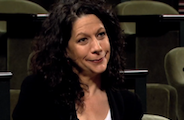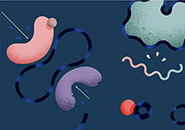
Scientific Discipline
Molecular Biology
Related Links
Host Institution
Emory University
Current Position
Victor Corces is Arts and Sciences Distinguished Professor of Biology at Emory University.
Current Research
Research Internship and Science Education (RISE) Program
Research
Biography
Victor Corces' philosophy is "never too young." His plan to expose Atlanta high school students to research as early as their freshman year is built on the belief that students need to hear from real scientists early.
As an HHMI Professor at Emory University, Corces is heading a program called Research Internship and Science Education, or RISE, designed to increase the number of students from disadvantaged backgrounds studying biology. To experience science firsthand, biology-minded high school students can join an all-student lab to work on a project from Corces' research. "These could be intellectually gifted students, but they don't have the mentoring and role models," Corces said. "And they don't know what careers are available in the sciences."
Students need the inspiration of tangible career goals to pursue biomedical research when they reach college, he added. RISE students will use classical genetics to determine the precise role of insulator proteins, which help organize the folding patterns of chromatin, the nucleic acids and proteins in a cell's nucleus that form chromosomes. The way fruit-fly chromatin is arranged may subdivide the genome into discrete sections or domains. One of these domains might direct a stem cell to turn on the appropriate set of genes—to become a muscle cell, for example, Corces explained. As students identify other chromatin structure genes, they will use the tools and techniques of molecular biology and biochemistry to characterize them—guided by Emory graduate students and postdoctoral fellows.
"These student projects would be things I would be doing in my lab anyway," the biologist explained. "Now I can put all the students in one space, working together, and their interactions can reinforce each other."
Ultimately, Corces hopes RISE will motivate about five seniors each year to apply to the Emory undergraduate program, which provides a full four-year scholarship to any Atlanta public high school student from the RISE program who gains admission to the university. "We need to increase the pipeline of underprivileged students [in research]. Some students' financial or social situations may make this seem like an impossible goal. I'm trying to reach those students and show them what is possible," he said.
Articles & News
Research Papers
Selected Research Papers



